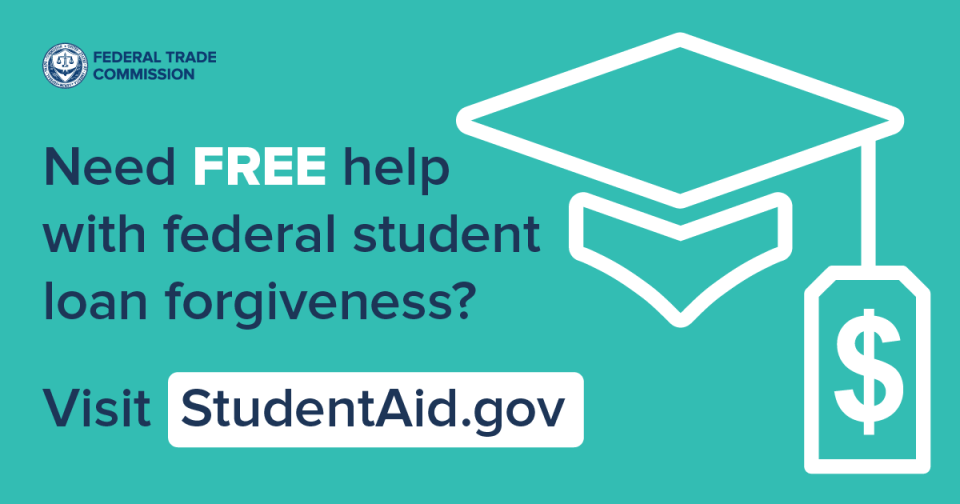Some student loan debt relief companies will lie and say they’re affiliated with the Department of Education when they’re not. They want their bogus claims of “guaranteed” loan forgiveness (for a fee) to seem more legitimate (they’re not).
And that’s what the FTC says Prosperity Benefit Services did when it sent out mailers promoting “complete” student loan forgiveness. If you called, telemarketers would try to convince you to enroll in one of the company’s programs by telling you it was affiliated with the Department of Education (they weren’t) and claiming it would make you eligible for quick loan forgiveness (they wouldn’t).
To sign up, Prosperity Benefit Services asked for an (illegal) upfront fee, your FSA account data, and your signature to get you started on a monthly payment plan. What services would you get? Usually nothing. In the rare case it did submit your application, it was for free federal repayment programs you could've signed up for yourself.
Some student loan debt relief companies are scammers. Here are red flags to watch out for:
- Scammers use official-looking names, seals, and logos to make them seem more legit. Make sure you’re working with a federal student loan servicer that’s listed on the Department of Education’s website. (And use the contact information listed there too — scammers can spoof the numbers and names of legit servicers.)
- Scammers charge an upfront fee. It’s illegal for companies to charge you before they help reduce or get rid of your student loan debt.
- Scammers say they need your FSA ID login information. Never give out this information. If a scammer gets your FSA ID, they could cut you off from your loan servicer — or even steal your identity.
Get free help managing your federal loans at StudentAid.gov/repay. If your loans are private, go straight to your loan servicer for help.


Good for you!
A valuable public service.
In reply to Good for you! A valuable… by Arnie Caloca
I Agree Thank you FTC!
Currently, other students have stolen my Fafsa account making it both difficult to register and pay off loans
I am not anybody with a student loan, but I am computer challenged enough to endlessly worry about computer security--this is just one more example. My complaint: I am fed up with endless governmental warnings like this one and the fact that I have NEVER read about our government tracking down and jailing these thieves. We got to the moon in 1969 but it seems our government does almost nothing to jail creators of computer frauds--who do much more damage than all the bank robbers of history. Further, should the frauds be of foreign origin, to demand, at the cost of sanctions, countries of origin to act equally to stop this endless illegal use of the internet.
In reply to I am not anybody with a… by William R Cline
Read FTC news alerts to learn about recent FTC cases. Go to www.ftc.gov/news-events to get started. For example, read how just last week the FTC finalized an order banning software provider Avast from selling or licensing web browsing data for advertising and requiring it to pay $16.5 million. Sign up to get future news alerts at https://www.ftc.gov/news-events/stay-connected.
Read the FTC's list of banned debt collectors: https://www.ftc.gov/legal-library/browse/cases-proceedings/banned-debt-….
Look at the list of recent FTC cases leading to refunds. The page has contact information for the company handling refunds. https://www.ftc.gov/enforcement/refunds
A quick Thank You for ALL you do to help us.